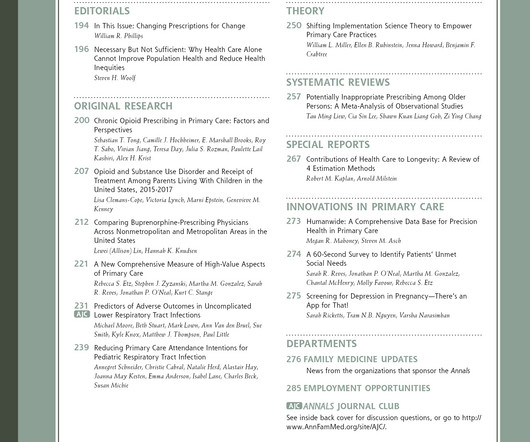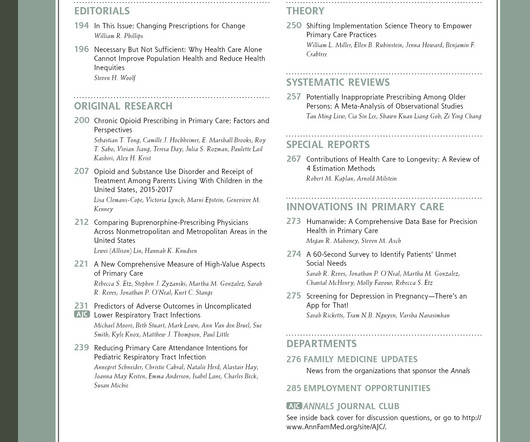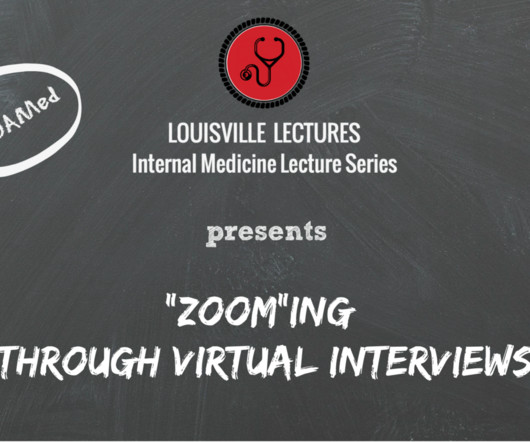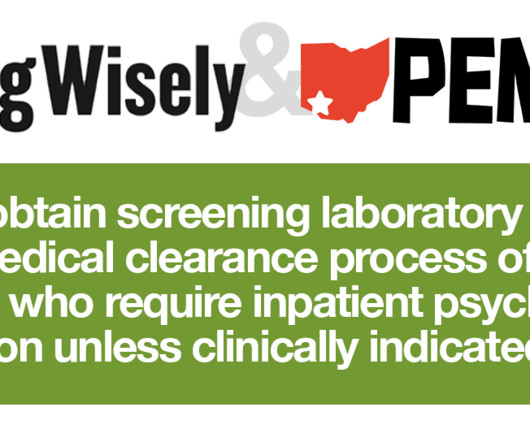Barriers to and Facilitators of Participant Engagement in a Multi-level Intervention for Type 2 Diabetes and Food Insecurity [Clinical trial]
Annals of Family Medicine
NOVEMBER 20, 2024
family medicine, general internal medicine, endocrinology) at an urban academic medical center in the Midwest. Population Studied: Adults (≥18 years) who receive care at an affiliated clinic, screen positive for food insecurity, have a T2D diagnosis, and an A1c level > 7.5%. Setting: Ambulatory clinics (e.g.,






















Let's personalize your content